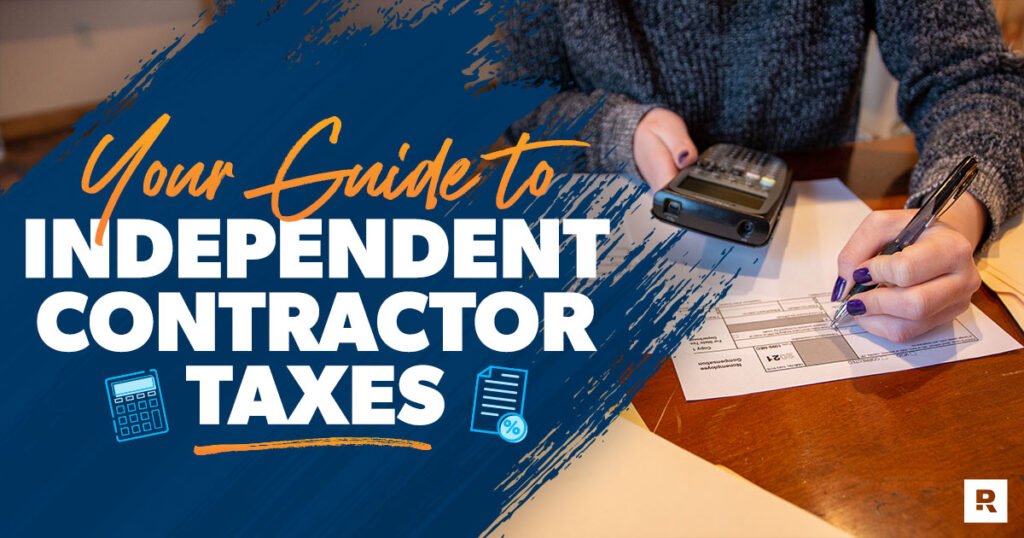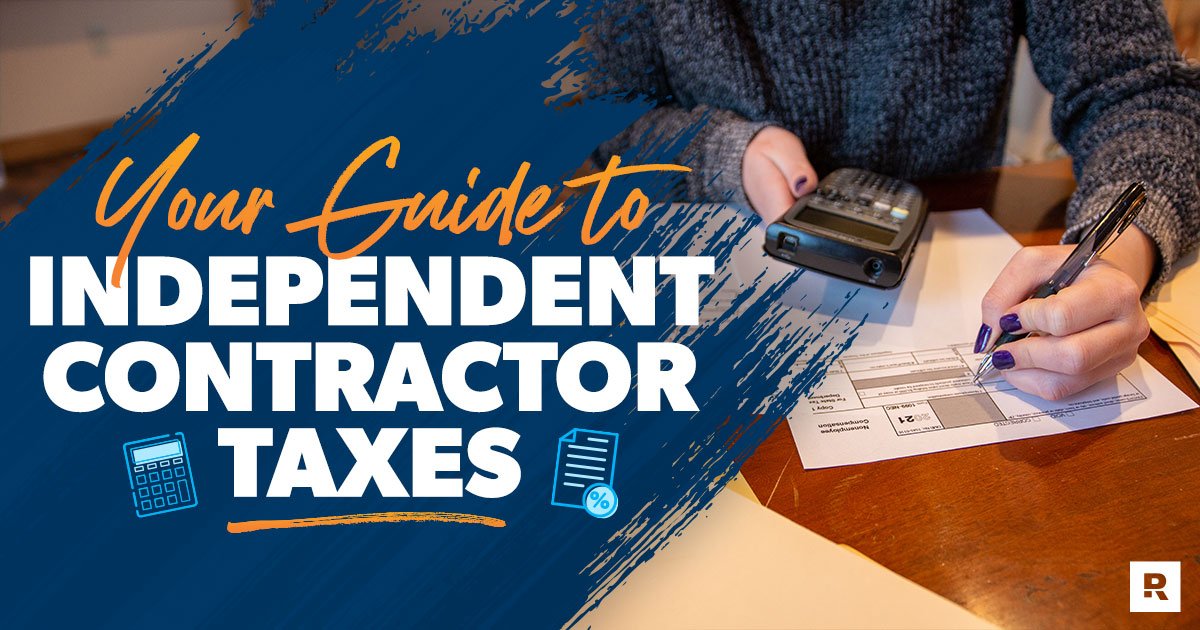Being an independent contractor has its perks—freedom, flexibility, and control over your work. However, with these benefits comes the responsibility of managing your own taxes. Unlike traditional employees, independent contractors must handle tax filings, deductions, and payments on their own. To make this process smoother, here are some essential independent contractor tax tips to ensure compliance and maximize savings.
Also Read: Tax Filing Errors Consequences

What Is an Independent Contractor?
An independent contractor is a self-employed individual who provides services to clients under a contract. Unlike employees, independent contractors are not on the company’s payroll and do not receive benefits like health insurance or retirement plans.
Key characteristics of independent contractors include:
- They are responsible for their own taxes.
- They often work for multiple clients.
- They control their schedule and work methods.
This classification means you’ll need to approach taxes differently than traditional employees.
Tax Responsibilities for Independent Contractors
As an independent contractor, you’re responsible for several aspects of your taxes, including:
1. Self-Employment Tax
You must pay self-employment tax, which covers Social Security and Medicare contributions. This tax is 15.3% of your net earnings, combining the employee and employer portions.
2. Estimated Quarterly Taxes
Unlike employees whose taxes are withheld from their paychecks, independent contractors must pay estimated taxes quarterly. These payments cover income tax and self-employment tax.
3. Record Keeping
You need to maintain accurate records of income, expenses, and deductions to support your tax filings.
4. Filing Schedule C
Most independent contractors file a Schedule C (Profit or Loss from Business) with their Form 1040 to report income and expenses.
Key Independent Contractor Tax Tips for Success
Managing taxes can be challenging, but these independent contractor tax tips will help you stay on track:
1. Separate Personal and Business Finances
Open a separate bank account for your business transactions. This will make it easier to track income and expenses, ensuring accurate tax filings.
2. Track All Income Sources
Keep detailed records of all payments received from clients. Use invoices, bank statements, and payment apps like PayPal or Venmo to track your income.
3. Save for Taxes
Set aside at least 25-30% of your income for taxes. This will ensure you have enough to cover your quarterly payments and year-end tax bill.
4. Use Accounting Software
Invest in accounting software like QuickBooks or Wave to manage finances, track expenses, and generate reports for tax purposes.
5. Understand Tax Deductions
Educate yourself about the deductions available to independent contractors (detailed below) to reduce your taxable income.
6. Work with a Tax Professional
Consider hiring a CPA or tax advisor who specializes in self-employment taxes. They can help you identify deductions, avoid errors, and ensure compliance.
Also Read: Business Tax Audit Procedures

Common Tax Deductions for Independent Contractors
Tax deductions can significantly lower your taxable income. Here are some of the most common deductions for independent contractors:
1. Home Office Deduction
If you work from home, you can deduct expenses related to your workspace, such as rent, utilities, and internet. Ensure your home office is used exclusively for business purposes.
2. Business Supplies and Equipment
Expenses for office supplies, tools, and equipment are deductible. This includes laptops, software, and even furniture for your workspace.
3. Travel and Mileage
If you travel for work, you can deduct transportation costs, lodging, and meals. For local travel, keep a log of your business mileage to claim a deduction.
4. Marketing and Advertising
Expenses for promoting your business, such as website hosting, ads, and social media marketing, are deductible.
5. Professional Development
Fees for courses, certifications, and training that improve your skills in your field are tax-deductible.
6. Health Insurance
Self-employed individuals can deduct premiums paid for health, dental, and long-term care insurance.
Mistakes to Avoid When Filing Taxes
To avoid penalties and maximize tax savings, steer clear of these common mistakes:
1. Missing Quarterly Tax Payments
Failing to pay estimated taxes can result in penalties and interest. Mark payment deadlines on your calendar.
2. Overlooking Deductions
Many independent contractors miss out on deductions due to poor record-keeping or lack of knowledge.
3. Mixing Personal and Business Expenses
Combining personal and business finances can make it harder to track deductions and may raise red flags during an audit.
4. Filing Late
Filing your taxes late can result in penalties. Ensure you meet the April 15 deadline or request an extension if needed.

How to Stay Organized Throughout the Year
Staying organized is crucial for successful tax management. Follow these tips:
1. Maintain a Filing System
Organize receipts, invoices, and financial documents by category and date. Use digital tools like cloud storage for easy access.
2. Use Expense Tracking Apps
Apps like Expensify or Mint can help you track business expenses on the go.
3. Schedule Regular Reviews
Review your financial records monthly to ensure accuracy and prepare for tax filings.
4. Automate Where Possible
Set up automatic transfers to a savings account for taxes and automate invoice generation to save time.
Frequently Asked Questions About Independent Contractor Tax Tips
1. What is the self-employment tax rate?
The self-employment tax rate is 15.3%, which includes 12.4% for Social Security and 2.9% for Medicare.
2. How do I calculate my estimated taxes?
Estimate your total income, subtract allowable deductions, and calculate your tax liability using the current tax brackets. Divide this amount by four to determine your quarterly payments.
3. Can I deduct my phone bill?
Yes, you can deduct the portion of your phone bill used for business purposes.
4. What happens if I miss a quarterly tax payment?
You may incur penalties and interest for missed or late payments. Pay as soon as possible to minimize these costs.
5. Do I need an EIN as an independent contractor?
While not required for all, an Employer Identification Number (EIN) can be helpful if you want to separate personal and business finances or hire employees.
Conclusion
Managing taxes as an independent contractor can be challenging, but staying informed and organized will make the process easier. By following these independent contractor tax tips, you can minimize your tax liability, avoid penalties, and focus on growing your business. If in doubt, consult a tax professional to ensure compliance and maximize your savings.

1 thought on “Independent Contractor Tax Tips: A Complete Guide to Managing Your Taxes”